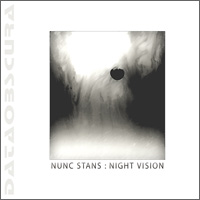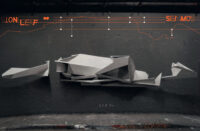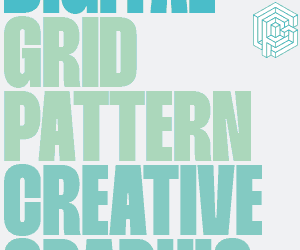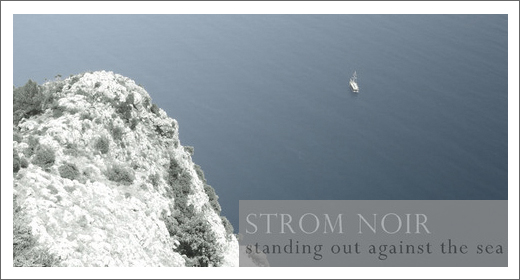 (05.20.07) The shadowy Nunc Stans originates from northern Canada, a place where nights are invariably long and associated visions therefore more potentiated for contemplation. And contemplative Night Vision decidedly is, though not in a candle-lit cross-legged sense. There seems a shared topography and sensibility with the latter-day Nordic Euro polar gloom orchestrators – the neo-environmentalist nature-spirit inclination of Biosphere, that is, rather than the gothic funerals of the Cold Meat Industrialists. Like the former, Nunc Stans produces a frost-flecked music that has about it a healthy flux of thermal energy, as of ice warmed by sun. It also comes heavy with an air of melancholia, an almost-alienation engendered by a sense of insignificance in the face of the overwhelming void. Before you bunk off from reading at this launching in at the existential deep end, stay with it: the difficult embarcation is due to
(05.20.07) The shadowy Nunc Stans originates from northern Canada, a place where nights are invariably long and associated visions therefore more potentiated for contemplation. And contemplative Night Vision decidedly is, though not in a candle-lit cross-legged sense. There seems a shared topography and sensibility with the latter-day Nordic Euro polar gloom orchestrators – the neo-environmentalist nature-spirit inclination of Biosphere, that is, rather than the gothic funerals of the Cold Meat Industrialists. Like the former, Nunc Stans produces a frost-flecked music that has about it a healthy flux of thermal energy, as of ice warmed by sun. It also comes heavy with an air of melancholia, an almost-alienation engendered by a sense of insignificance in the face of the overwhelming void. Before you bunk off from reading at this launching in at the existential deep end, stay with it: the difficult embarcation is due to
some salvage work needed to rescue Nunc Stans’s compelling music from consignment to an unmerited “New Age” limbo.
Now it’s not the fault of the Gracenote database that the music is thus designated. But some people lose sight of the fact that sub-genre categorizations are the work of humans using ‘shorthand’ taxonomies, rather than properties internal to the music itself effecting auto-categorization. Someone pigeon-holed this “New Age.” But it’s a vapid appellation, applied as it is to a whole range of musicians whose only common element is an interest in the more metaphysical. Now Night Vision does have some of the trappings of the crystal-hugging spirituality that repels many who are quick to cry “New Age,” as if it were a sign saying “unclean:” liner notes with lines of poetry referring to the void and space, of Truth, and the great Nothing, and of divinity are a clear admission of “guilt.” However, the artist includes a more direct and concrete statement that “The music…is inspired by our personal experience of the night sky…its sense of infinite depth and ultimate incomprehensibility.” OK, it ain’t exactly rock’n’roll, but it isn’t the stuff of brain-addled neo-religio-cultism. Sure, the delicate texturalism and near-awestruck reverence of some of this music could be mistaken by the idle listener for the musical anodyne of Wyndham Hill or other such exercises in inert quiescence, but this is music that is more challenging, even edgier and darker in places, than, say, Eno or Aphex-style ambient. Light years, admittedly, from the madcap jouissance of Igloomag’s main “IDM” diet, but Nunc Stans, like many of the artists on
Databloem/DataObscura’s roster, is manifestly possessed of immaculate abstract electronic credentials. So if you’ve ever felt stirrings of an E-music or “space music” softspot, to add to that more Zeitgeist-y 12k/Kranky/Room 40 orientation you cultivate, then don’t let facile dismissive tags deter. Enter and explore.
With so much textual time spent defending my “client,” there’s little left for description and appraisal. Some reference points perhaps: the likes of Jeff Greinke and Oöphoi, but above all mention should be made of Anthony Paul Kerby, head honcho of Databloem (of which DataObscura is CD-R sublabel), who did the final mastering of this recording, and whose Shower-curtain of Sound, a digital film/veil identifiable from recent work as The Circular Ruins and Lammergeyer, can often be found here, draped,
teeming, across the backdrop. Night Vision is indeed fundamentally a work involving deep dark drones, hence the invocation of Oöphoi’s name (on website promo-blurb), but this is more active, less aethereal, though a vaporous floatpoint feel is common. Nunc Stans’s sources are primarily softsynth-generated – no bells and bowls – and in addition to the drones, subtle streams of sound percolate, both earth and air, along with liminal field recording incursions (e.g. disembodied voices). On the 12-minute
“Infinity Plus One,” for example, there’s a definite sense of forward movement, contrasting with Oöphoi’s amniotic suspension, and melodic structure is threaded through like dark embroidery, visible when held at a certain angle to the light. On the title track itself the mood is deep, reflective, oneiric, shifting from the prevailing preceding sombre mood, as Nunc Stans draws out a different drone into a rich mezzotint ambience, one that enfolds within it a layered luminosity, bejewelled with pinprick sonics.
Night Vision is out now on DataObscura. [Purchase]























